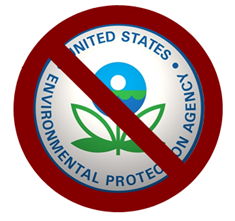By Natalia Castro
The former Obama administration wanted to save the environment, but rather than asking American industries for help, the administration decided they knew best and instead imposed regulations on companies. One of the most damaging regulations, affecting nearly every American citizen, was Obama’s expansion of the Corporate Average Fuel Economy (CAFE) standards, regulating auto makers on fuel efficiency but instead slowing their growth and stifling innovation. Luckily, the Trump administration is giving the voices oppressed under Obama’s system a seat at the table once again.
Since the oil shortages of the 1970s, fuel regulations have been imposed on the automobile industry, but the Environmental Protection Agency (EPA) has used CAFE standards to combat climate change and lower greenhouse gas emissions. In 2011, the Obama EPA and the National Highway Traffic Safety Administration (NHTSA) came together to force automakers to improve fuel efficiency standards by 2025, with a midterm review occurring in 2016.
Theoretically, in 2016 the EPA and the NHTSA would communicate with automakers to create standards that are feasible for compliance before they issued their Final Determination for CAFE standards; but instead, the unrestrained power Obama gave the EPA allowed them to usurp the automakers most affected by this policy and even the NHTSA, who the EPA is supposed to be working with.
As the Alliance of Automobile Manufacturers explained in a letter to EPA Director Scott Pruitt, “EPA issued the Proposed Determination without coordinating with NHTSA. EPA demanded comments by December 30, 2016, even though the Proposed Determination was not published in the Federal Register until December 6. The public and industry had a mere 24 days, spanning a major national holiday, to comment on nearly I ,000 pages of documents, plus additional cited documents and computer modeling, regarding requirements that will profoundly affect the automobile industry and the more than 900,000 American workers it directly employs.”
It makes sense that automakers are angered by the EPA’s overreach, while they have been taken out of the discussion, they have the most to lose. These regulations are both realistically unattainable and extremely expensive to attempt.
The letter continues to explain, “As the Supreme Court has recognized, EPA’s regulatory efforts to address greenhouse gases have already produced ‘the single largest expansion in the scope of the [Clean Air Act] in its history’…standards. The Alliance supported these efforts-but only on the condition that EPA and NHTSA would reassess standards as data became available to test their feasibility. That commitment was essential because of the great uncertainty regarding the feasibility of the future standards. Based on the projections in the 2012 rule, manufacturers must achieve an average 54.5 miles per gallon equivalent across their new vehicle fleets by 2025. Even today, no conventional vehicle today meets that target, and conventional vehicles comprise 96.5 percent of the new light-duty vehicle fleet.”
The letter goes on to describe that the automotive industry would have to spend $200 billion between 2012 and 2025 to comply with the EPA’s rules.
Luckily President Trump has empowered the Department of Transportation to stand up to the EPA.
Under the leadership of Secretary Elaine Chao, the Department has announced they will be reviewing the midterm evaluation done solely by the EPA, allowing the NHTSA and automakers a voice in the discussion.
The Final Rules released by the Department will allow the NHTSA to reconsider the EPA’s guidelines and seek further comments from the public. The second final rule delays the imposition of the EPA’s guidelines while the NHTSA reconsiders with stakeholder input.
Finally, the Obama Administration’s unyielding power will be reined in, and the EPA will be forced to work with the industries they are affecting rather than against. President Trump is not only proving that he is willing to limit government, but also protect the industries that will truly make American great again.
Natalia Castro is a contributing editor at Americans for Limited Government.








